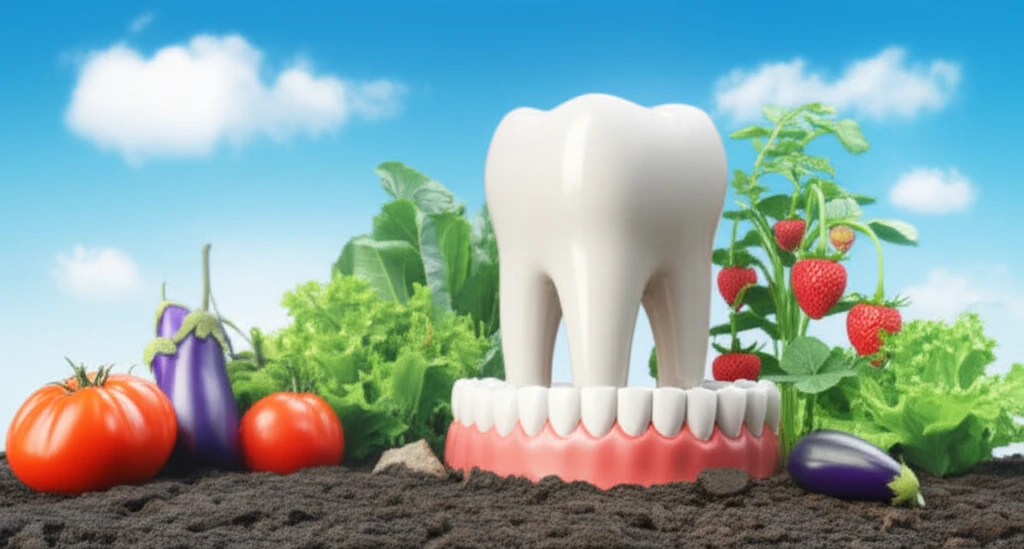
Unlocking the Secrets: How Your Diet Directly Impacts Tooth Loss
"A deep dive into the surprising connections between nutrient intake and dental health."
Maintaining a healthy smile goes beyond just brushing and flossing. The food we consume plays a significant, often underestimated, role in our dental health. Proper nutrition is not only vital for overall well-being but also directly impacts the strength and longevity of our teeth.
Tooth loss, a prevalent issue affecting many adults, is frequently linked to dietary habits. Understanding this connection is the first step towards making informed choices that promote healthier teeth and gums. Research indicates that specific nutrients, or lack thereof, can either fortify our dental defenses or accelerate tooth decay and loss.
This article explores the intricate relationship between nutrient intake and tooth loss, drawing on systematic reviews and longitudinal studies to provide evidence-based insights. We aim to equip you with the knowledge needed to make dietary adjustments that support a vibrant, healthy smile for years to come.
The Vital Link: How Diet Influences Tooth Loss

The relationship between diet and tooth loss is complex, but scientific studies increasingly highlight the importance of nutrition in maintaining dental health. A systematic review of longitudinal studies, as outlined in a recent research article, sheds light on how specific dietary factors can impact the risk of tooth loss. This review emphasizes that what we eat directly influences the health and stability of our teeth.
- Cholesterol and Tooth Loss: Studies suggest that smaller reductions in cholesterol are associated with fewer teeth lost, indicating a potential protective effect of maintaining healthy cholesterol levels on dental health.
- Dietary Fiber: Greater tooth loss is linked to smaller increases in dietary fiber intake, highlighting the importance of fiber-rich foods in promoting dental health and preventing tooth loss.
- Potassium: Declines in potassium levels are noted in adults with fewer functional tooth units (FTUs) and in women who have lost a limited number of teeth, suggesting a role for potassium in maintaining dental health.
- Fruit, Vegetables, and Fats: Smaller reductions in the consumption of fruits, vegetables, and saturated and trans fats, along with a greater reduction in polyunsaturated fats, are related to the number of teeth lost, emphasizing the need for a balanced intake of these nutrients.
Take Control of Your Dental Health Through Diet
The research is clear: what you eat directly impacts the health of your teeth. By prioritizing a balanced diet rich in essential nutrients, you can significantly reduce your risk of tooth loss and maintain a healthy, vibrant smile for years to come. Stay informed, make conscious choices, and take control of your dental health through the power of nutrition.
